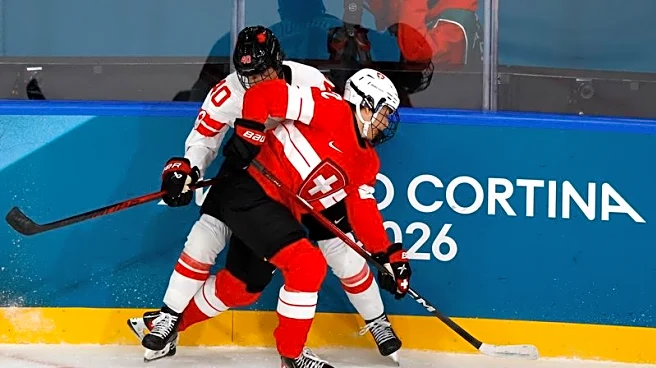Rapid Read • 8 min read
Russia's Foreign Minister Sergey Lavrov announced that there are no plans for a meeting between Russian President Vladimir Putin and Ukrainian President Volodymyr Zelenskyy, despite President Trump's recent claims of arranging a summit. Trump had stated on social media that he spoke with Putin and initiated arrangements for a trilateral meeting. However, Lavrov emphasized that any meeting would only occur after senior officials resolve key issues, which could lead to prolonged negotiations due to significant differences between the parties. Ukraine seeks Western security guarantees to prevent future Russian aggression, while Russia insists on being involved in any security arrangements.
AD
The absence of a confirmed meeting between Putin and Zelenskyy highlights ongoing challenges in achieving peace in the region. The situation underscores the complexities of international diplomacy, where conflicting interests and security concerns can hinder progress. The potential impact on U.S.-led peace efforts is significant, as it may affect geopolitical stability and influence U.S. and European relations with Russia. The stakes are high for Ukraine, which seeks security assurances, and for Russia, which aims to maintain its influence without conceding to Western demands.
Future negotiations may involve detailed discussions on security guarantees for Ukraine, with U.S. and European officials working to develop proposals. The international community will closely monitor Russia's actions and responses to diplomatic efforts. The potential for increased military activity remains, as evidenced by recent Russian attacks on Ukrainian infrastructure. Stakeholders, including NATO and European leaders, will likely continue to push for a resolution that ensures regional stability and security.
The broader implications of the stalled peace talks include ethical considerations regarding territorial concessions and the precedent it sets for international conflict resolution. The situation raises questions about the effectiveness of diplomatic interventions and the role of global powers in mediating disputes. Long-term shifts in alliances and power dynamics may emerge as countries reassess their positions and strategies in response to the evolving geopolitical landscape.
AD
More Stories You Might Enjoy












